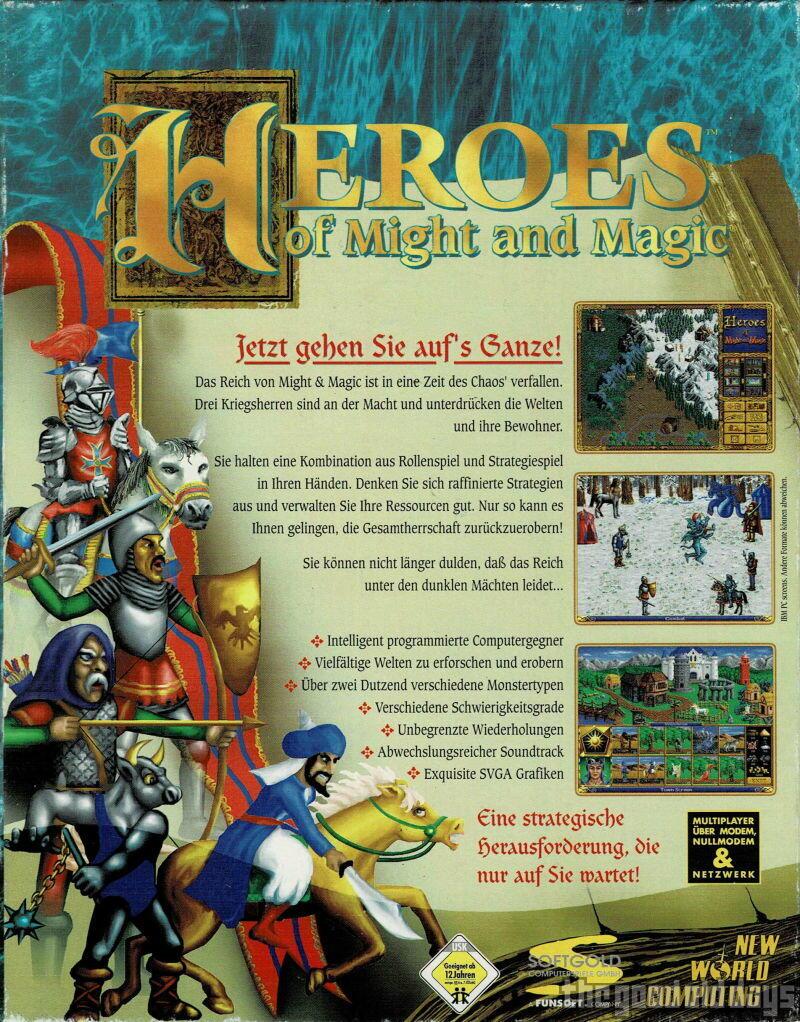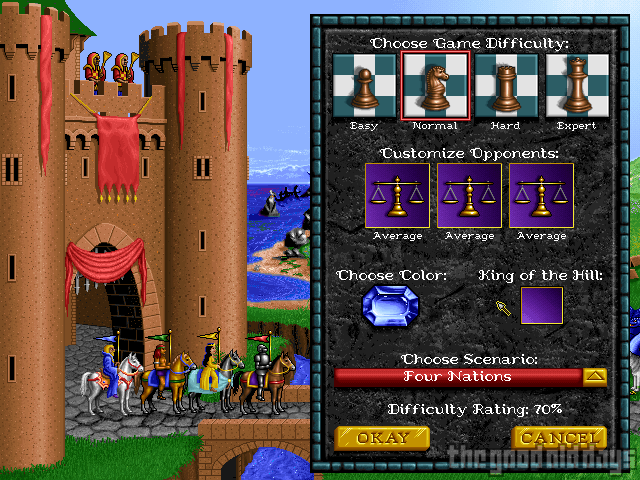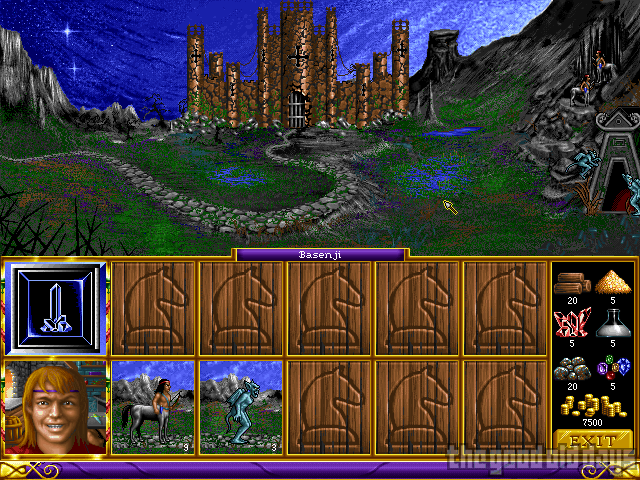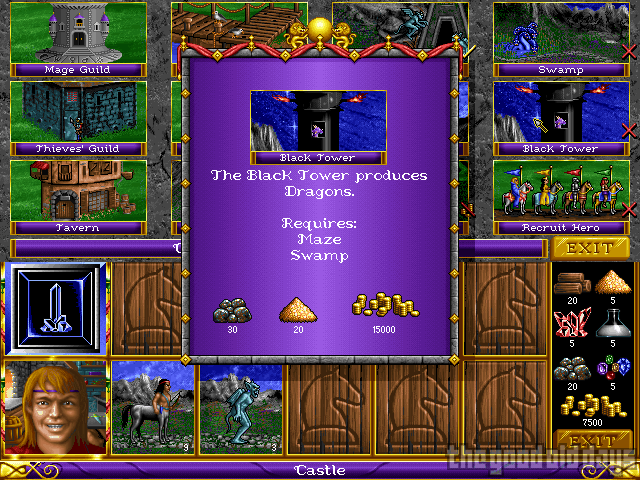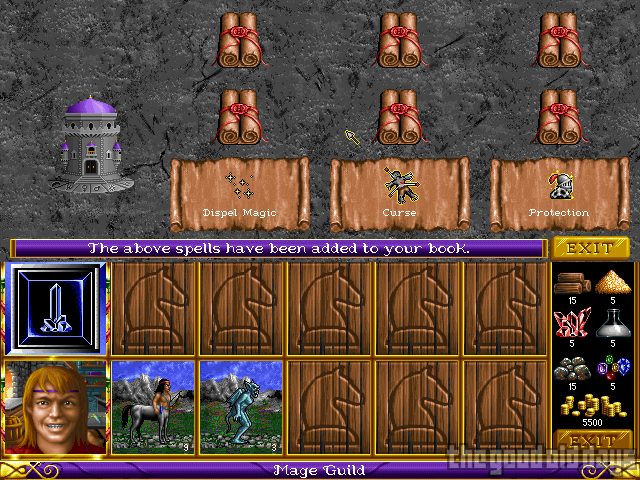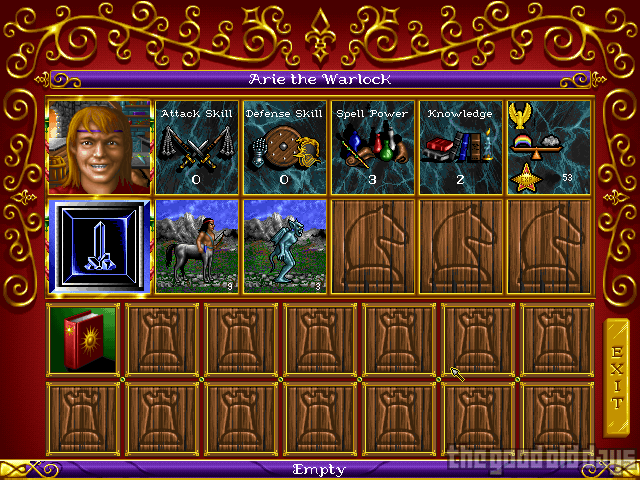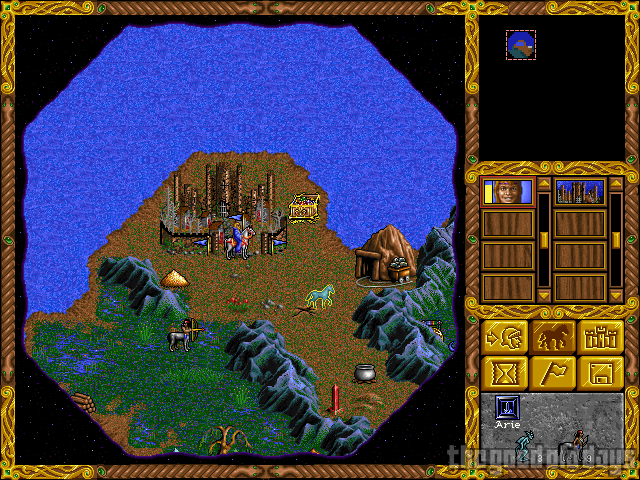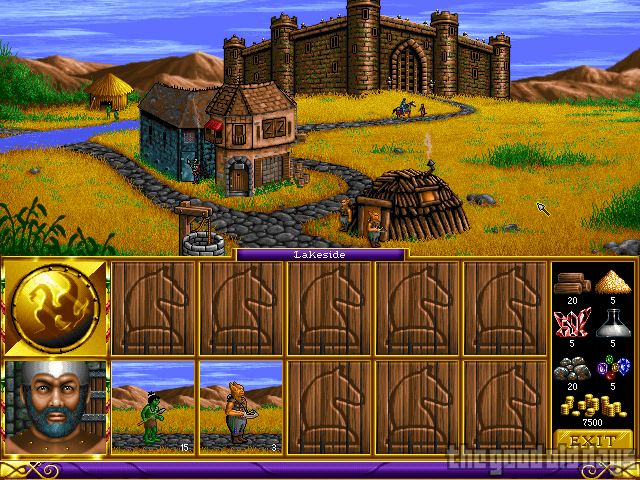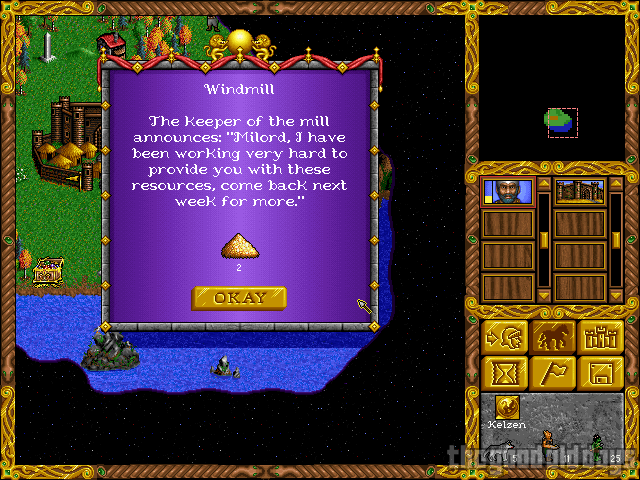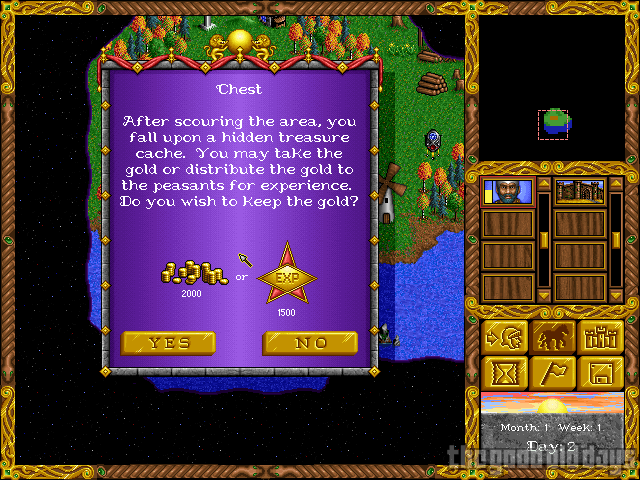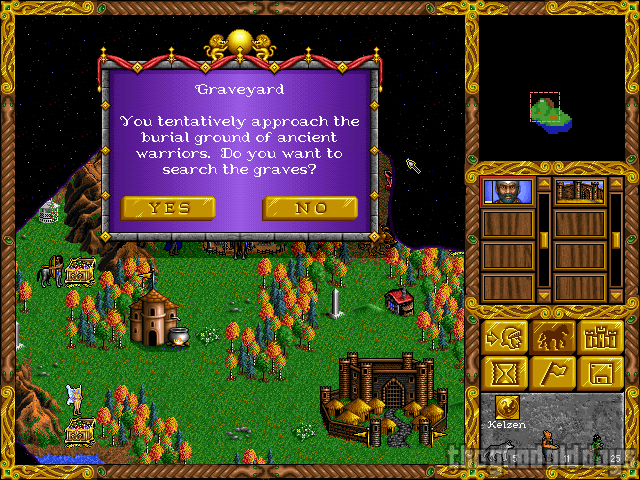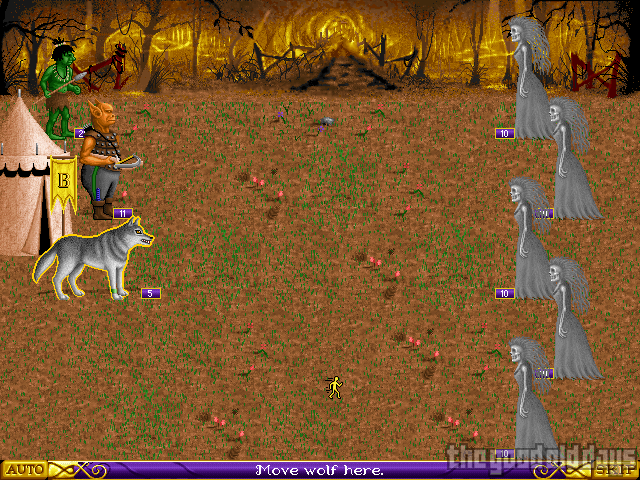Thoughts by Wandrell (20 00 2014) – PC (DOS)
King's Bounty got a facelift and was combined with the popular Might and Magic series in what somebody thought it was a nice idea. And I don’t say it wasn’t, they took one strategy game that didn’t fare so well and revived it with their best-selling franchise, a common move. It’s just that I doubt they expected this to end being their new best-selling series.
And it couldn’t come at worse time, the year 1995, the same one in which the Playstation appeared, bringing an age of fast 3D games, where old 2D strategy had no place. People just wanted to turn-on the game and start playing at that moment.
There is a very naïve solution to this problem, just make a game that is easy to learn, yet at the same time keeps all the complexity of a strategy game. It sounds like like a childish joke, yet that’s exactly what they did. Most strategy games were a mix of several intermixed systems, where you had to take control of everything, from production to combat, at once.
So for solving it, they just divided each part of the game in a separate layer, that way instead of learning how to handle a big and complex machine, all you needed was to learn various small games.
Among them, the main pillar are the battles, as it was to be expected. They are inherited from King's Bounty, a sort of tabletop look, where you move your troops through tiles in search of the enemy. There is a bit more meat than that, of course, as for example there are spells to be cast, and a simple, yet effective, morale and luck system, which can make your units get extra turns or cause critical wounds.
But that actually connects to the next layer, which is the heroes management. These are the moving force of the game, as they carry your troops, and also have an advancement system based on experience and levels. Raise them and you will increase your troops' efficiency in battle, or your hero’s spell power. Even though the mentioned morale and luck are part of this, the effects are not as direct, because it is affected by the artifacts your hero carries, the mix of troops he has and, also, by random events found while exploring.
What you explore is the overworld. At its core it’s just the level map, but include lots of places to visit, monsters to battle, castles to capture and, of course, mines to take. Forget about them and you won’t have any resource to expend.
Expend where? On the castles, the last layer of the game. These are your headquarters, where you create new buildings to unlock the creatures and services they offer. Each castle has a theme, which marks the units you can hire, from the enchantress and their fairies, to the knight and his armored troops, including, of course, the wizard and his dragons, but otherwise they are all mostly the same.
And now, knowing all this, you only need to take on your enemies, which require finding the other castles around the place, so you can capture them until you get bored because nobody can stop you. But that is the usual problem with computer players, isn’t it?
Luckily there is still another thing I haven’t said, and it is a great part of the game’s success, because it is really good that the game is well designed and fun, but one of the strongest points of this game is how easily you can start playing against other people. As fast as you prepare a game against the AI, you can prepare one against human players.
And that is, actually, which made the game so good. Being able to play a fun game is, well, fun, but being able to play it against friends is better. Sadly, as it is usual in turn based games, finishing a scenario can take a full day. And that is if you even manage to go up to the end.

